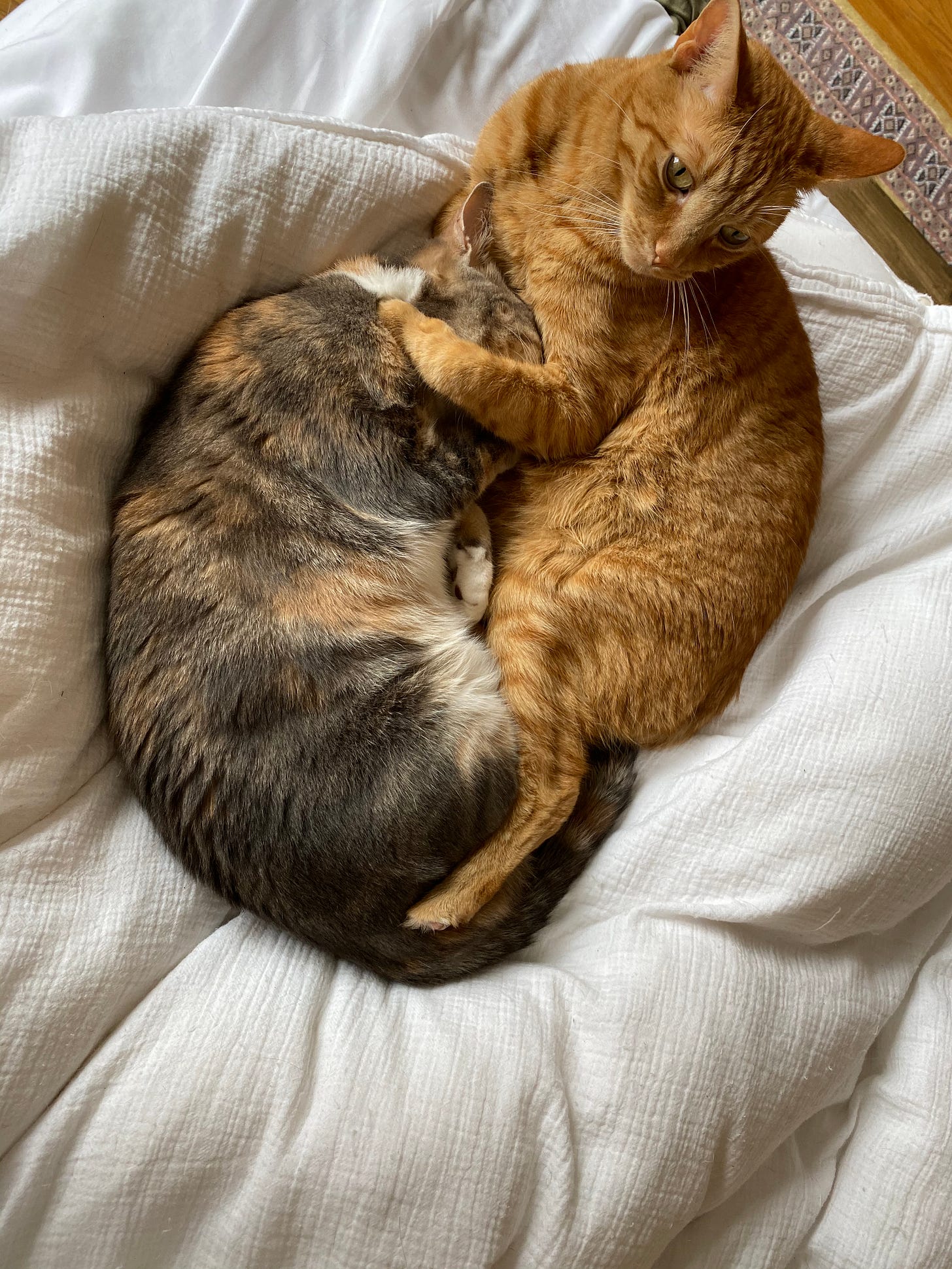
I am very attached to these dinguses.
It’s a season of gratitude, when Americans pause and take stock of all that we have. Hopefully that practice of feeling grateful goes beyond Thanksgiving and November, but even when it does, we often give thanks for the external — for family, friends, a home, our health. That’s not bad — family, friends, home and health are all important for a safe and happy life — but this week, can you also find gratitude for yourself?
Not for your accomplishments or achievements. Not for your beauty or how you bring pleasure to others. Not the attributes that make you “good” (your kindness, your generosity, your caring). Not for your hard work or what you’ve attained.
Can you instead honor your deepest, most essential self? That little flame of something that makes you human — that would still make you human without the career, without the family, without good health, without prosperity, without your cultural identity, without any of the stuff at all?
Don’t get me wrong: the stuff is valuable. You worked hard for what you’ve achieved. You have spent time and effort cultivating your relationships, strengthening your friendships, loving your family. Maybe you’ve built a home that feels safe and warm (maybe safety was given to you). Maybe you or a loved one has had health struggles, and you know the precariousness and value of good health. So many people in the world live without the basics, and there is nothing especially dignified about poverty, nothing to spiritually fetishize about living without the necessities. For those of us lucky to have a lot, all we have is indeed worthy of recognition and appreciation. We should share more of it. For those of us who give a lot, those decisions are indeed worthy of acknowledgment.
But what if it all went away, fell apart? What if you learned that your identity as you understand it was mistaken? What if your career tanked? What if your family dissolved? What if your very idea of yourself as a good person because of what you do, what you give, and how you behave was fundamentally challenged?
Would you still find yourself worthy?
Detachment is hard, and perhaps a little overrated. Attachment has its benefits — passion, a depth of human experience, that full range of emotion that comes with desire and disappointment and attainment. There is gratitude to be felt there, too. In a letter to the editor of Harper’s Bazaar, Anaïs Nin writes, “I think life tragic, not comic, because I have no detachment. I have been guilty of idealization, guilty of everything except detachment. I am guilty of fabricating a world in which I can live and invite others to live in, but outside of that I cannot breathe. I am guilty of too serious, too grave living, but never of shallow living. I have lived in the depths.”
(You should read the whole thing).
But today and this week, can you plumb even deeper? Can you look inside your own skin and imagine yourself stripped down, totally alone, valued at zero by those around you, and can you still whisper I love you? Can you mean it?
xx Jill


